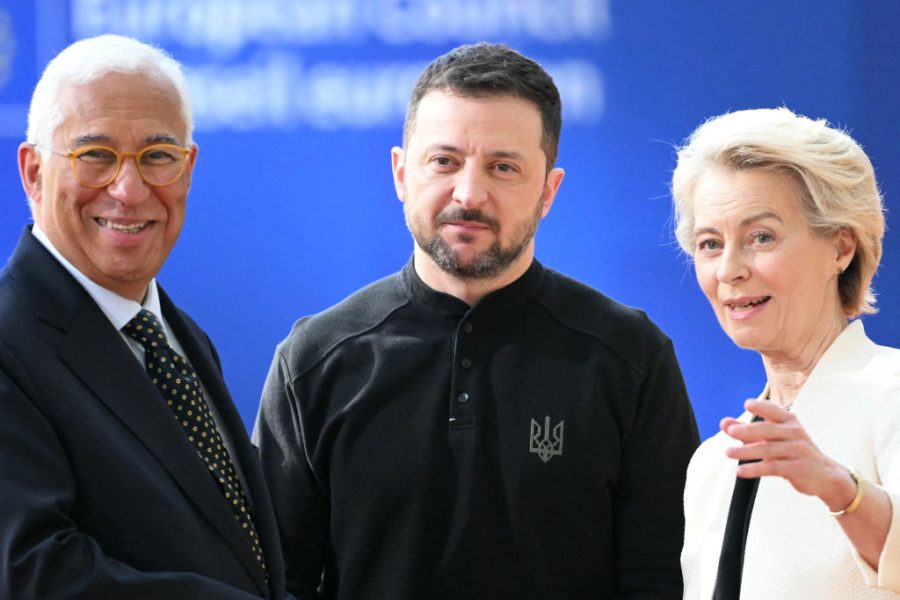European leaders are in Brussels today for an emergency summit on defence, and the future of both Ukraine and the continent. In a further attempt to hash out a peace plan for Ukraine, the 27 EU heads of state are joined by Volodymyr Zelensky. Arriving this morning, Zelensky declared, ‘It’s great we are not alone’.
As part of today’s agenda, members of the bloc are expected to endorse Ursula von der Leyen’s ReArm Europe plan – which will make €150 billion (£125 billion) available in loans for members to boost defence spending. The summit will also likely discuss French President Emmanuel Macron’s proposal to extend his country’s ‘nuclear umbrella’ to its continental neighbours.
EU leaders are talking about today’s meeting as the moment that everything changes
EU heads are clearly treating today’s gathering as a crucial opportunity to wrest control of the continent’s future away from America and Russia. Fresh from an address to the nation last night in which he called Russia a ‘threat to France and Europe’, Macron called for ‘an incredible awakening’. Danish Prime Minister Mette Frederiksen said that time was running out as we get closer to Trump and Putin striking a deal without Europe’s involvement: ‘[We need to] rearm Europe: spend, spend, spend on defence and deterrence’.
Today’s discussion on Ukraine is expected to build on Sunday’s summit in London, hosted by Keir Starmer. The aim is to find a way to end the war that is agreeable to Kyiv. A key challenge will be the presence of Hungary’s Viktor Orban and Slovakia’s Robert Fico, whose stances towards Ukraine can, at best, be described as ambivalent, if not directly antagonistic. Another notable difference in today’s guest list is the presence of the Baltic states, including Lithuania and Estonia – they were not invited to London – and of course the absence of Starmer himself. Friedrich Merz, the likely next chancellor of Germany, is also in town to meet with leaders, although he will not be attending the summit. He described the continent as being at ‘five minutes to midnight’.
The Brussels summit comes as news broke overnight that senior Trump allies have held secret meetings with Zelensky’s political opponents, Yulia Timoshenko and members of Petro Poroshenko’s team, in Ukraine. The meetings reportedly involved a discussion on how easy it would be to hold presidential elections in the country. This is an alarming indication that America’s interests in Ukraine might be aligning with Moscow’s – particularly on replacing Zelensky with a more malleable individual. Both Timoshenko and Poroshenko have today stated they are opposed to elections being held before the end of the war.
EU leaders are talking about today’s meeting as the moment that everything changes: from Europe’s approach to defence to its relationship with America. Arriving at the summit, Poland’s premier Donald Tusk declared. ‘Europe as a whole is truly capable of winning any military, financial, economic confrontation with Russia – we are simply stronger.’
These are big, grand statements. The trouble is that over the course of the war in Ukraine, Europe’s leaders have developed a track record of talking tough on defence and deterrence before repeatedly falling short on delivery. Von der Leyen’s ReArm plan is just the latest example of this. It has been touted as a package that would boost EU defence spending by as much as €800 billion (£670 billion). In reality, it will give each country just under €6 billion (£5 billion); they will have to borrow the rest themselves.
European countries have this week begun individually announcing plans to up defence spending alongside this. But to have any effect, today’s summit will have to go substantially further than the proposals which have already been publicly floated. As things stand, in the arms race between Europe, Russia and America, it is the EU which is lagging behind.








Comments